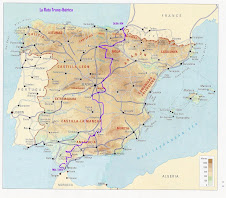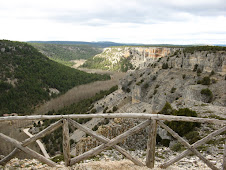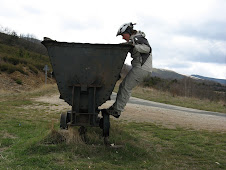One of the most exciting things about taking part in SALOMON WOMEN WILL is getting the experience to work with - and hear from - other women adventurers who dedicate their lives to exploring the world. For Spanish climbers, Araceli Segarra needs no introduction: She was the first Spanish woman to reach the summit of Mount Everest, and is known as one of the world's foremost mountaineers. Back in May, she did an interview with SALOMON about the challenges and joys of women in the world of active tourism:
You've spent many years being one of the best Spanish alpinists. Do mountains now signify devotion or obligation for you?
AS: My aim's always been to work as little as possible, in order to climb as much as possible. It's an authentic calling for me: climbing and travelling.
When did you first know that you were made for mountaineering?
AS- Truth is, I don't know that I even know that now. I never had a revelation; day by day, I got here in a fairly organic way. Living, for me, is doing what you really love, even though that means that you've got to be brave.
Do your upcoming projects demand bravery?
AS- Within a month [June 2007] I'm going to return to Everest to do another film for IMAX. The first was in 1996, during that expedition which will always be a special for me, although the goal that time wasn't to reach the summit.
[Gratuitous comment from Patricia: Whatever you do, DON'T miss Jon Krakauer's classic retelling of that fateful May in 1996, "Into Thin Air". She was too modest to say it during this interview, but the members of the IMAX team - including Ed Viesturs, David Brashears and Araceli - put their own summit attempt in jeopardy to help bring the injured climbers down off the mountain. ]
What words do you have for young women who have fallen in love with mountains?
AS- Enjoy it, and to enjoy it, remember that you don't have to go to Lapland or Madagascar. There are an infinite number of adventures to be had in the Pyrenees and the Alps. You can be a good mountaineer right near your own home; it simply consists of enjoying outdoor sports. .
Has being a woman been a help or a handicap during your career?
AS- It's never posed a problem for me. I climb with a lot of guys, and they see me as a fellow climber and a friend who likes to go up rock. But I always try to be realistic and I don't make things difficult for myself by going beyond my limits. That's what keeps you out of trouble - for both men and women.
Finally, what did being the first woman to summit Everest give to you personally?
AS- Some good things and some bad things. Among the good things is that I've always been clear that, in terms of mountaineering, my feat didn't break any barriers, given that I did it with bottled oxygen. It's just that, at that moment, our objective was to bring an IMAX camera to the top of the world. We accomplished that, and the 1996 film is proof of that. That was good, as is being the first woman to do something to help more people get inspired - and when we're talking about women, that is something very positive. I also put a lot of value on how communication works, and that I put in my two cents when it comes to demystifying the danger that the media always sticks to mountaineering. It's not really as dangerous as they say - I'm just saying!
The downside is that I've been labelled "Everest Girl" and my life in sport is a lot more wide-ranging than that. I do a lot of different things with different levels of ability. I don't want anyone to put me on a pedestal, just so that I can fall down later. I'm not trying to sell anything and I believe that words are worth their weight in gold - that's why I always try to put the truth first.
(Big thanks to Toti Rosselló for letting us re-print his interview with Araceli.)
Subscribe to:
Post Comments (Atom)





No comments:
Post a Comment